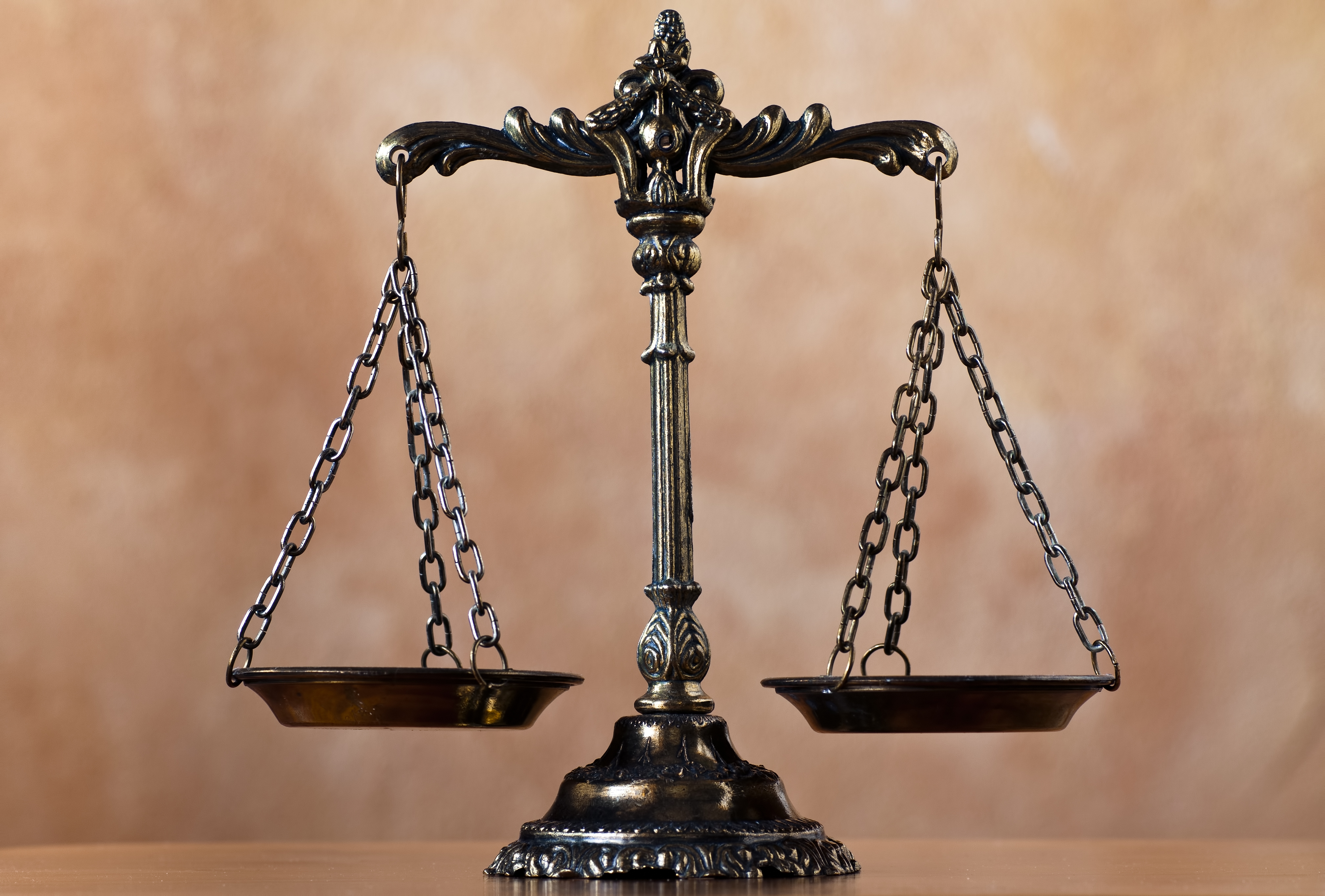High-profile mass shootings in the United States, with their random tragedy, present major challenges for the news media in dealing with sometimes small communities that have little or no experience in the media spotlight. There is an inherent tension between getting the story quickly and accurately — and often with user-generated contributions — and serving a possibly close-knit population that is not only grieving but perhaps having its core beliefs and faith in humanity shaken.
One such recent incident came on the evening of May 23 in the college town of Isla Vista, on the edge of Santa Barbara, Calif., where police say Elliot Rodger stabbed his roommates James Cheng-Yuan Hong and David Weihan Wang, and their friend George Chen, to death. Police say he then drove around Isla Vista in his car shooting at people randomly, killing Katherine Cooper, Veronika Weiss and Christopher Michaels-Martinez, and injuring 13 others.
But to hear some in the community tell it, the media coverage compounded the trauma, especially with its repeated playing of a video by the alleged killer.
Anticipating that type of potential effect and keeping students’ safety and emotional states in mind, the UC Santa Barbara student newspaper decided to eschew breaking news to give the coverage of its own community deeper thought and analysis — a decision that received both praise and criticism. The questions that decision raised perhaps take on more meaning for journalism as a whole as citizens, themselves, become a growing part of the overall journalistic enterprise in any community.
[Editor’s note: The reporter for this article was a member of the Bottom Line staff as well as part of the editorial board, but did not participate in its coverage decisions.]
The arguments are compelling for all sides in the debate over these challenges at the crossroads of interactive, community and national journalism. Below are two differing points of view on how members of the media performed in the aftermath of yet another mass shooting in America:
* Victoria Sanchez is the KEYT News Channel 3 weekend anchor in Santa Barbara, and was one of the first reporters on the scene. She interviewed Sierra Swartz, the only student who actually saw and spoke to Rodgers that night.
* Isabelle Geczy is a student at the University of California, Santa Barbara, who protested the media attention at local memorial sites. At the time, she was a writer for UCSB’s weekly newspaper, The Bottom Line, though she did not cover the tragedy; she will be the news editor for the 2014-15 academic year.
VICTORIA SANCHEZ – KEYT
AJR: Students reacted strongly to media presence in Isla Vista following the shootings. Some students held signs in front of the memorials saying, “Go home, media,” and, “Our grief is not your ratings.” What did you think of student reaction to the media attention?
Sanchez: I know for a fact they had never seen that many news media agencies all in one place, in the tiny little Isla Vista community. … So, I did see that. I did get yelled at from people telling me to “go home.” And I respectfully said, I am home. This is my community, too. My phone number starts with 805 just like yours does. This has just as much impact on me as it does you. … I think that’s what they were most concerned about, that people from the outside were coming in.
AJR: How hard was it to approach students and get them to talk to you? You interviewed Sierra [Swartz] after she was shot at. How did you approach someone in that state?
Sanchez: When I saw Sierra, she was walking down the street, barefoot, crying. I simply asked her, “Are you okay? What happened?” and she said, “I just got shot at.” And she was very much shocked; she was confused. … First, before asking her to speak on camera, I asked her, “Are you okay?” because clearly, this was a very difficult situation, even though at the time, I had no idea how large of a scale this was. I said, “Would you mind talking to me on camera?” and she said, “Absolutely.” So she shared her story, and that was the first time I heard her story.
[Below, further coverage from Sanchez of Swartz’s account of dodging bullets.]
AJR: Do you think the media could better handle tragedy?
Sanchez: It depends on how you look at it. People want to know what’s happening when something tragic like this happens. …. The night of the shooting, I worked for 28 hours straight because people wanted to know what was happening. We had to update our website. We were going live during times when we didn’t have a news show, we were breaking into programming, because people wanted to know what had happened, who was hurt. So I think the media plays a very, very important role when it comes to getting information across. …
I think most journalists try to be as respectful as they can when it comes to dealing with people who have either been shot at, like Sierra Swartz, or who had family members who were injured or killed. I think where people start getting upset is the days following — three days, four days, five days, of people repeatedly asking them the same questions. Were you here, did you get shot at, did you know anybody, how are you feeling now? Anybody, if somebody gets asked that question 12 times, you’re going to get a little upset.
AJR: Do you think the media coverage puts too much focus on the alleged perpetrator?
Sanchez: I know that was an issue, especially Christopher Michaels-Martinez’s father said that he didn’t want to see the alleged perpetrator on the news anymore. He wanted us to focus on the victims. I could understand that, especially him losing his only son. I could understand he does not want to see the person on the news who killed his son over and over.
However, people need to know who [Elliot Rodger] was. People need to know what kind of person he was, what mindset he was in, because those are questions people are asking themselves. That’s what we as journalists need to do; we need to answer the questions people have … to clean up any hearsay, any rumors. In this case, what his history is, the fact that he had possible mental illnesses. This is something that needs to get out there. Because he was the son of a Hollywood director, he did get the spotlight a little more than someone who didn’t have a father in Hollywood.
AJR: Do you think journalists should ever decline to ask someone for an interview who is personally affected by a tragedy – such as if he or she is visibly upset or disturbed?
Sanchez: I think we have to ask them. I think we have to not only give the opportunity to somebody affected — I think it’s our job to ask the tough questions. If someone is visibly shaken, we should ask like humans, before reporters, first. Sometimes there’s a distinction between that, unfortunately. For example, the first questions I asked Sierra were, “Are you okay? What happened? Where are your shoes? Do you need anything?” Those are questions I asked of her first, because I saw that she was upset.
Her story’s a very important one, considering she was one of the last people to get shot at, and was not hit. She saw Elliot Rodger’s face. She saw the gun. She saw his car. He talked to her. And she even told us that he laughed as he was shooting at her. I think those details are very important, which I did not know about, but she shared. So, I think there’s a line, and I think it’s a case-by-case basis, but I think there shouldn’t be a blanket statement that if somebody’s upset, we don’t ask questions, because that’s our job as journalists.
ISABELLE GECZY – STUDENT ACTIVIST, JOURNALIST
AJR: What did you think of student reaction to the media attention?
Geczy: It was different for me because I, instead of feeling like other people needed to know about what was happening in Isla Vista, I automatically felt kind of angry that this tragedy was being commodified. I think that’s how a lot of the students felt because this was so personal for so many people, and to have such a large interest in the subject on sort of a national scale, as people inquired to friends out of state asking if everyone was okay, but also wanting details in a way that was more about being interested in what happened rather than understanding this was horrifying to witness and to be a part of was difficult for me to reconcile, personally. And I think it was difficult for a lot of the students to reconcile as well.
AJR: Do you think the media could better handle tragedy?
Geczy: I think there’s definitely something wrong with the way we handle tragedy and with the way we handle news. This came into focus with me when I actually talked to one of the journalists that had been trying to film me in front of the deli when we were protesting. He came up to a couple of us and tried to engage with us and we’d already decided we weren’t going to say anything to the media about why we were doing it; we didn’t necessarily want to make it another story. But he was very thoughtful in asking questions, so I went to him afterwards to find out why he was even interested, and we got to talking about what it means to be a journalist today and what it means to be working in a 24-hour news cycle that’s predominantly focused on television and Internet news. He explained because this happened at the beginning of a holiday weekend, different media outlets were “thankful for the content.” And I remember that phrase and remember being so sickened; something dropped in the pit of my stomach. People thinking, “Oh good, now we have a story for the next three days.” And that’s symptomatic of a problem — that tragedies have evolved into this sort of disaster porn that people consume because it’s not happening to them.
AJR: How did you manage your emotions as a student activist, and as a journalist, during the course of these events?
Geczy: As a journalist, it was … very shocking because I really didn’t know what to do, or how to feel. There were reporters from the daily student newspaper at every scene interviewing students, churning out content, and that didn’t feel right to me either. It felt almost disrespectful to students it was happening to. But at the same time, I aspire to be a journalist, and I think getting people the news is important. This puts into sharp relief that question about whether or not you’re giving people information that is needed and necessary and vital, or if you’re giving people information because they’ll find it titillating and because they will find it entertaining.
AJR: Do you think the media coverage puts too much focus on the alleged perpetrator?
Geczy: I understand that you can’t have entirely victim-centric reporting, but at the same time, the way that everything was made about the shooter in the coverage after the shooting just seemed to me to be so wrong. Because all this troubled kid wanted was notoriety, and he definitely got it after his death. … So I think the solution is to simply not cover these tragedies to the extent that they’re currently being covered.
AJR: Do you think journalists should ever decline to ask someone for an interview who is personally affected by a tragedy – such as if he or she is visibly upset or disturbed? Why or why not?
Geczy: I want to be a war correspondent, but at the same time, I don’t know if I want to do that just because I now have, on a much smaller scale than a war, I have seen what that looks like, and it’s not pretty.
I think from a human standpoint, you shouldn’t try to get an interview out of someone who is visibly upset. You should try to make sure they’re okay. But from the standpoint of a reporter, I don’t think they should be the first person that you should go to, interviewing somebody who is visibly upset that you don’t have a connection to. If they’re the mother of the victim or if they were the person whose house burned down, obviously then that means they would be a pretty critical source. But I think the answer is difficult. Objectively, you’re supposed to get the best information and best quotes that you can. But I don’t think you should beleaguer a crying person to try to get a quote from them because it’ll be better for you.
AJR: What does it mean to be a person or a journalist first in a tragedy? Is there a way to reconcile the two?
Geczy: I would hope so. I would hope there would be a way to reconcile both. I would at least hope that some of the best reporting would come from people that were able to be more in touch with their human side and recognize the gravity of what was happening, and recognize how that was affecting people, and let that guide their reporting, rather than just a determined drive to get the story no matter what.… That said, the difficult thing is that if a reporter were to get that involved in the tragedy they were covering because they were so conscientious, then that could affect their ability to report. It would make it hard for them to report. So I think it’s a complicated balancing act, a very fine line that journalists have to walk.











Leave a Comment